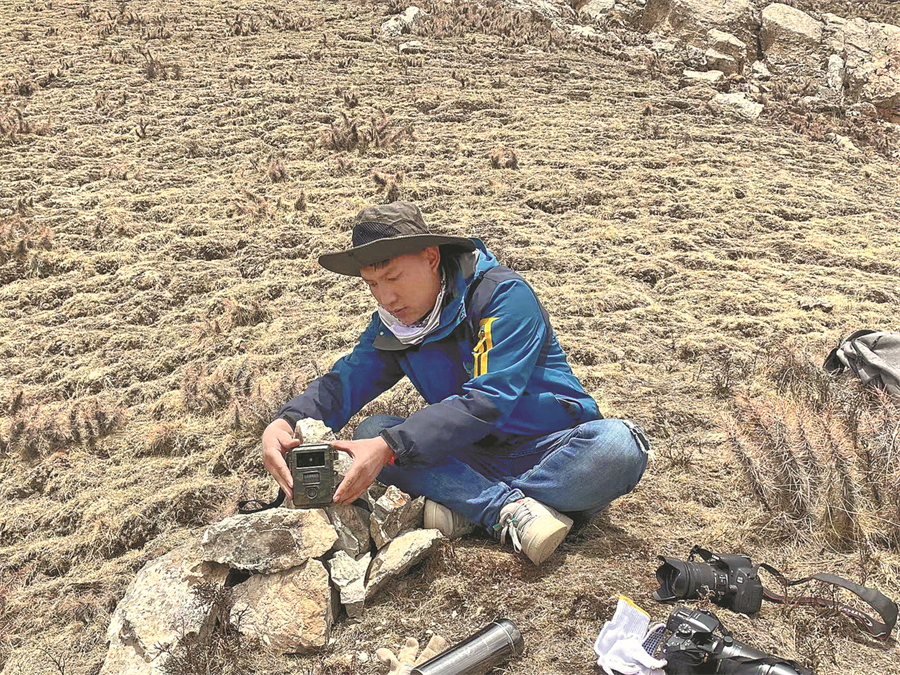Qinghai takes huge strides toward green future

A local herdsman uses a GPS locator to trace the footsteps of snow leopards in Yushu, Qinghai province. [Photo provided to China Daily]
Green commitment
Officials and analysts said a key factor behind the strengthened ecological protection drive in Qinghai is the heightened emphasis placed on conservation efforts by the nation's top leadership.
China has taken unprecedented measures regarding environmental protection and ecological conservation over the past decade, launching major battles against air, water and soil pollution.
Last month, during a national conference on ecological and environmental protection, President Xi Jinping laid out a broad vision for building a Beautiful China, saying the nation would firmly adhere to and practice the philosophy that "lucid waters and lush mountains are invaluable assets".
Xi made two fact-finding trips to Qinghai in 2016 and 2021, underscoring protection of the province's ecology and environment as a major issue for the nation, along with the region's increasingly prominent role in environmental, national, resource and energy security.
He called for steps to develop the province into a powerhouse for China's green development, including measures to build up its clean energy sector and enhance its capacity to produce green and organic agricultural and animal produce.
During discussions with national lawmakers from Qinghai in 2021, the president underlined the province's major responsibility for national ecological security and the nation's sustainable development.
While praising the efforts made by the authorities, Xi called for continuous steps to give top priority to ecological conservation, saying that work in this regard remains arduous and requires persistent efforts.
Wang Enguang, an official at the Qinghai Forestry and Grassland Administration, said the province has led the way for China to establish a network of nature reserves, spearheaded by the development of three national parks.
Qinghai now boasts 83 nature reserves with a total area of 27.2 square kilometers.
Wang said the main function of national parks is to ensure the authenticity and integrity of natural ecosystems.
"With the national parks established, ecosystems on the Qinghai-Tibet Plateau and mountains can be effectively restored and corridors for wildlife migration unblocked. Habitats for endangered species such as snow leopards can be made more adaptable and consistent," he said.
























